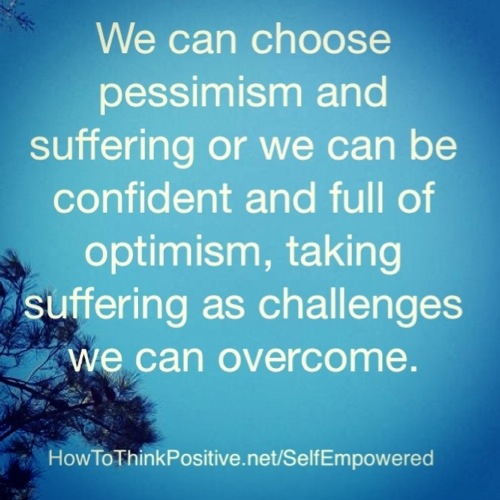Optimism and pessimism are two different mindsets that can have an impact on how we feel about the world, our lives, and ourselves. Optimism is a way of looking at life with a glass half full. It’s a hopeful expectation that you will succeed in life. Pessimism is the opposite. It’s viewing life as bleak and negative with no hope for success or happiness.
This post contains Amazon affiliate links, meaning I may earn a small commission if you purchase through my links, at no extra cost to you. Note: We aim to provide accurate product links, but some may occasionally expire or become unavailable. If this happens, please search directly on Amazon for the product or a suitable alternative.
Optimists tend to be more satisfied with their lives than pessimists because optimists believe that they have control over what happens to them. They also see the world in a more positive light, which means they are less likely to experience stress.
Pessimists tend to feel bad because they’re always expecting the worst and not seeing any potential for anything good. They also may think that their lives will never improve and that they can’t change anything in the world or their lives, so why bother even trying? Optimists are more likely to see themselves as capable of overcoming obstacles and achieving goals. They’re also more likely to take control over their thoughts and emotions.
Optimism and pessimism are the two main ways to view the world. Pessimists often see the world as having more negative aspects than positive ones, while optimists have a tendency to believe that the world is generally good. Which one you choose really makes a difference in how you experience the world. Studies show that people who are pessimistic have higher rates of depression, anxiety, and stress than their more optimistic counterparts. As well as this, pessimists don’t get as much happiness from life as those with an optimistic outlook.
We all know that it is easy to be pessimistic in life, as the world can be a tough place. But how do you know if you are too pessimistic? Here are some signs:
- You think that you are not good enough or capable of achieving your goals.
- You have negative thoughts about things routinely.
- You often feel sad and low on energy.
- Your life is governed by fear and worry instead of hope and faith.
If any of these apply to you, then it might be time for a change in perspective. Optimism, while more difficult than its counterpart, has been shown to have many benefits that can help you live a happier and more fulfilling life.
How to Become an Optimist
Research has found that optimism can be learned and developed. It is not a trait that you are born with, but it is instead something that you can work and develop.
Optimism is a powerful trait. It can help counteract stress, boost your immune system, and improve the quality of your sleep. The key to feeling optimistic in life is to focus on the good things around you. You can take steps like practicing gratitude or doing something for others to deliberately bring more positivity into your life.
Always be aware of your thoughts because this will allow you to take better control of them. Whenever you catch yourself being pessimistic about something, you can always choose an action that will redirect this pattern.
Remember that you can make use of all your senses to affect your thoughts. This means that at any point in time, you can play an inspiring piece of music, give someone a hug, or express compassion to someone that needs it. As simple as that.
We can choose pessimism and suffering or we can be confident and full of optimism, taking suffering as challenges we can overcome.

It’s easy to make up excuses when things aren’t going your way. This might seem like the only option you have at the time, but it turns out that there are some major benefits to choosing optimism instead of pessimism. You might just be surprised by what happens when you start looking on the bright side!
Learn more:
Did You Like This Article?
Get the full guide here »









